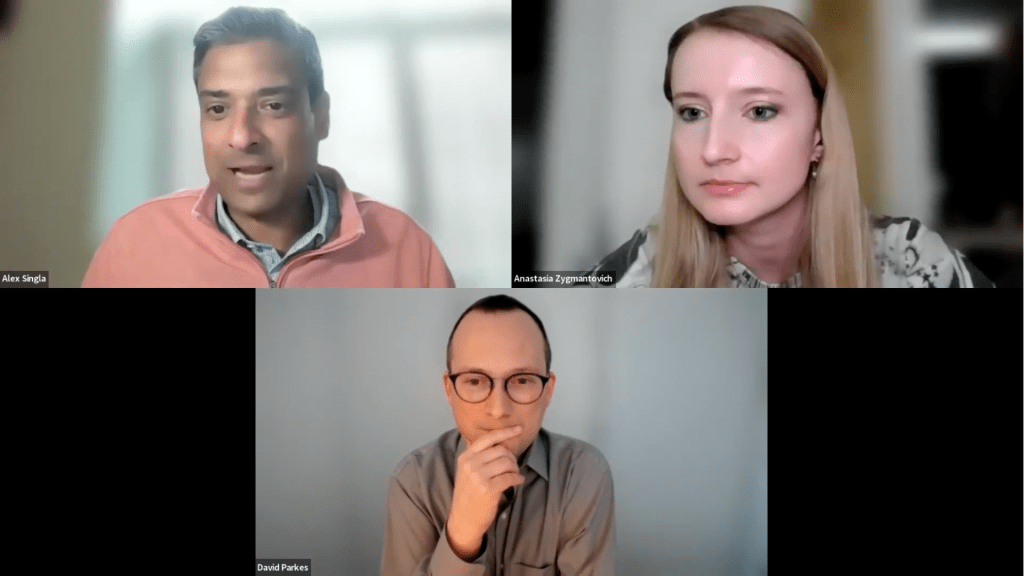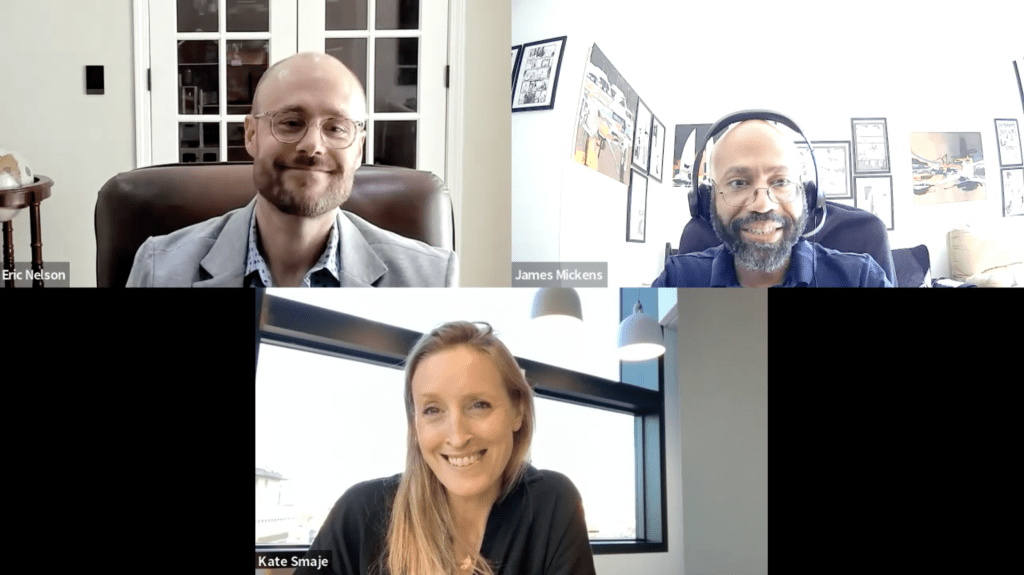Reflecting on the Spring 2023 Data Leadership Special Series with McKinsey & Company experts
Today’s data-built world requires upfront commitments from organizations to be responsible stewards of the data they collect and use. As we stretch the boundaries of what we can achieve through data, we cannot overlook the related ethical implications. Data breaches, privacy violations, biased algorithms—leaders in data and AI must be aware of the risks surrounding data usage and develop the skills to navigate these complex issues, ensuring that data is used responsibly and transparently. How do we create value while upholding the privacy and security of individuals? How can we protect against bias and discrimination? How do we operate within legal and regulatory frameworks? As leaders, how do we build and cement data ethics into organizational cultures?

In response to these questions, the Harvard Data Science Initiative, together with the Harvard John A. Paulson School of Engineering and Applied Sciences, hosted a series of virtual seminars on data leadership. Between February and April 2023, we invited senior leaders from McKinsey & Company to join Harvard faculty and industry leaders from companies and NGOs to discuss novel and increasingly urgent challenges in AI, digital trust, ethics, data governance, and regulation.
The HDSI spoke with McKinsey’s Liz Grennan, Expert Associate Partner, and Alex Singla, Senior Partner and Global Leader of QuantumBlack, AI by McKinsey, about the series and what it means for the field of data science now and in the future.
HDSI: What inspired you to propose this seminar series? Why is the topic of data leadership important?
Liz Grennan: The world is making giant leaps in generating, gathering, and harnessing data. Artificial intelligence is now an important topic discussed in boardrooms and at kitchen tables—and data fuels AI. Every organization will depend increasingly on data—and invest more in tools and talent to create value. But as public and private sector organizations race to deliver returns on those investments, only a few are making clear progress in ethical, legal, and regulatory compliance. As a result, some may suffer staggering reputational and financial costs.
Alex Singla: That’s right. Everybody’s dazzled by the growing power of data as AI adoption continues. But using that power safely, wisely, and sustainably will require new cross-functional leadership with a more comprehensive view of the risks and commitment to AI and data governance.
Among the more than 1800 senior leaders we surveyed worldwide in 2021, only about 30 percent recognized equity and fairness as AI risks, for example. One in five said their organization had a dedicated data governance committee that includes risk and legal professionals. Students in nearly every Harvard program can help improve AI and data leadership in the years ahead, no matter their role or title.
HDSI: When you think about the seminar series, what threads connect all four conversations?
Liz Grennan: For me, everybody can step up. We all have important roles in ensuring data is handled and used responsibly. Lawyers and marketing teams can’t expect data scientists or cyber experts to make the most consequential decisions about data on their own, for example, and the reverse. Consumers will also need to learn how to protect their data better. It’s an important capability we all need to develop. Digital trust is incredibly valuable—it will be a foundation of advances in many areas, from healthcare to financial transactions—but we can maintain it only by working together. Losing that trust will mean missing some of the most significant opportunities in the years ahead.



HDSI: What surprised you most in these discussions?
Alex Singla: I’m struck by how the exciting new opportunities across analytics, data, and technology today present challenges and risks as old as civilization. Many senior leaders at large organizations—sophisticated, experienced, ethical people—see vast new pools of data almost as oil waiting to be drilled or gems waiting to be mined. In their eagerness to tap into these huge sources of value, they may not consider all the major questions, including where the data came from and its potential downsides.
In the long run, everyone will be better off, governments will be more effective, and companies will drive more growth if data is gathered, stored, shared, and used ethically and transparently. AI and data governance, in this way, can accelerate change.
Liz Grennan: That’s backed up by research. In a survey of more than 3,000 consumers, 70 percent said they had at least some confidence that the companies they do business with protect their data. But many large companies are not yet able to meet these expectations—nearly six in ten experienced at least one major data breach in the last three years.
This mismatch between faith and reality could materially erode customer loyalty. Shortcomings in oversight, governance, and transparency can grow over time in any organization and contribute to customer churn and increasing cynicism, and a lack of trust. Given that trust is gained in drops and lost in buckets, companies must continue to protect consumer data with good stewardship.
HDSI: What advice would you give students entering the workforce who want to serve as leaders?
Alex Singla: In the years ahead, every leader will need enough up-to-date knowledge about data to ask the tough (and correct) questions, including how the organization gathers, stores, shares, and uses it and the full array of risks those activities may pose.
A data scientist can explain what data can reveal. A lawyer can explain what the organization is permitted to do with data. Marketing teams can explain how they would use it to drive sales. But wise leaders must decide whether the organization should gather certain data and how and when it should be used. As one senior executive told us, their company is more than just aiming to comply with regulations. Their goal for data management is setting expectations with consumers and then meeting those expectations in ways that are ‘additive to the brand.’
Liz Grennan: I agree that a working knowledge of data and AI risks and governance—and a keen ethical compass—are essential moving forward. But every effective leader must also rally people around a clear ethical framework that serves the company’s interests, employees, customers, shareholders, and the communities where it does business. Increasingly, those communities are global.
That’s a lot to put on anybody’s to-do list. But the extraordinary power of AI and machine learning tools can’t be separated from extraordinary risks, including some we can’t foresee today. The leaders of tomorrow must keep learning and tread carefully to help their organizations thrive in marketplaces where change will only accelerate. The leaders of tomorrow must embrace that they’ll need to continue learning for the rest of their careers.
